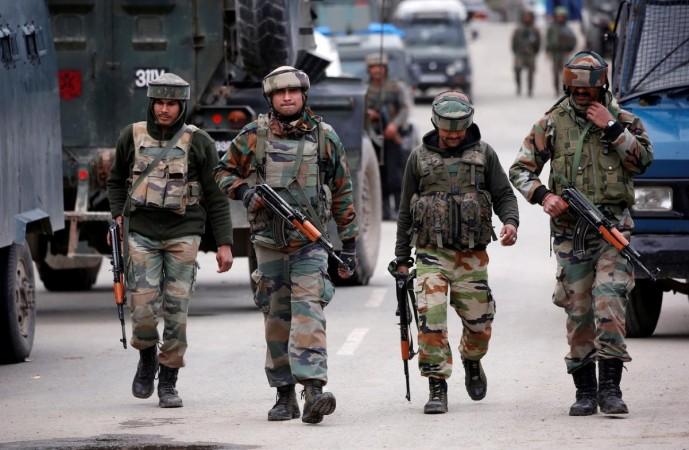
The Kashmir Valley continues to witness radicalisation of its youth despite heavy crackdown of communication source in the security and intelligence officials said. The development has come just a day after the Indian Army said that Pakistan was trying to infiltrate terrorist along Pakistan-occupied Kashmir (PoK) in Indian Territory.
As per a report in Mint, the centre is yet to lift the restriction on the use of mobile phones as the government believes it may lead to trigger unrest. However, it seems all the efforts being taken by the security forces are going in vain. As per reports from intelligence agencies, the on-ground terrorist groups are now communicating through satellite phones, a traditional technique which these militants resort to.
Moreover, the youth are also being radicalised during prayers at mosques, especially in villages across south Kashmir's Pulwama that giving sleepless nights to security agencies. Apart from local unrest, the intelligence has also identified training and launch pads belonging to the Lashkar-e-Taiba to Muzaffarabad.
One senior intelligence officer who is closely monitoring the situation, seeking anonymity, said, "Pakistan has been trying to test various strategies along the PoK. Now, it has come to light that these terrorists are sidestepping all communication curbs and using satellite communication and resorting to old, traditional methods of radicalization. This means that young boys are 'spoken to' in the mosques, where they are allowed to go."

But defence experts are of the view that Pakistan has resorted to its traditional way of bleeding India when it comes to cross-border terror. Retired Lt Gen HS Panag who himself has immense experience in counter-insurgency operations said, "This (infiltration) is an ongoing affair and it is a long-drawn strategy of Pakistan. Camps belonging to Lashkar-e-Taiba and Jaish have been running for the last 30 years along PoK and Pakistan shuts them down and revives them at will."
Some retired officials have said that after the abrogation of Article 370, India's counter-terrorism operation has not up to the mark. Since last one month, the defence forces have received only scattered information about terrorist presence and movement in the Kashmir Valley. A former central government official said, "India's counter-insurgency grid has taken a dip after Article 370 because information and informants have dried up. Those who would provide tip-offs earlier, no longer do so. In this one month, the forces have tracked just two terrorists, while there are 250 of them in the valley. This would have been the ideal time to clean up the valley, but intelligence has failed us."








